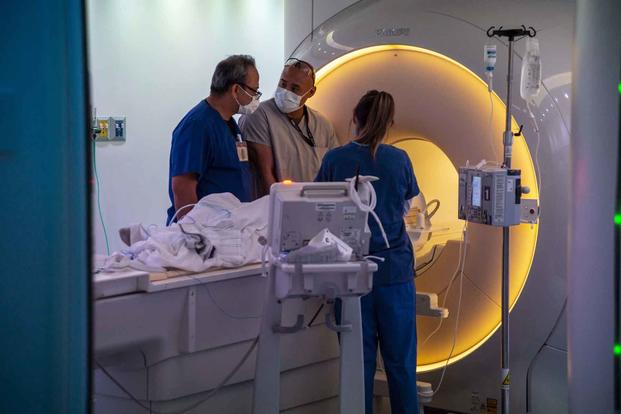An analysis of brain activity in patients with post-traumatic stress disorder has found that the brain processes traumatic memories associated with PTSD differently than regular memories -- a finding that could explain why PTSD trauma recollections feel so intrusive.
A small study published Thursday in Nature Neuroscience looked at the brain activity of 28 patients with PTSD and found, as researchers triggered the patients' memories, that PTSD trauma manifested itself in a different part of the brain than the section usually associated with memory storage and recall.
The section of the brain activated when reexperiencing a traumatic event, the posterior cingulate cortex, is known for acting as a person's inner monologue and is involved in self-talk and introspection, according to Daniela Schiller, a researcher with the Center for Computational Psychiatry, part of the Icahn School of Medicine at Mount Sinai in New York.
Regular sad memories, Schiller said, are processed in the hippocampus, as seen on patient brain scans known as functional magnetic resonance imaging.
"We notice there are two states of the brain: one when it is retrieving a traumatic memory and one for regular memories. And ... there is something different -- maybe [the traumatic memory] is not even a memory, it's more like a present experience," Schiller said in an interview Wednesday with Military.com.
The researchers embarked on the study to see whether there was a biological reason for why patients said their PTSD trauma was more robust and intrusive than regular memories.
To study the difference between memory processing, the researchers -- including scientists from Ben-Gurion University of the Negev, Yale University School of Medicine, and the Veterans Affairs Connecticut Healthcare System, among others -- exposed the patients to narratives of their own memories. That included traumatic, PTSD-related events such as combat, domestic violence or sexual assault; sad memories like the death of a family member or pet; and positive, calm memories such as a favorite hike or outdoor activity.
The patients received the MRIs while being exposed to their memories, with researchers monitoring brain activity.
They found the brain does not treat traumatic memories as regular recollections or "perhaps not even memories at all," lighting up the posterior cingulate cortex, Schiller said.
The researchers theorized that traumatic PTSD memories may be so unique to an individual, so self-relevant, that they "live" in the part of the brain known for self-awareness, or that the event is never processed as a memory, but instead is disconnected from time and space and surroundings and is experienced as a mental event, not a recall of memory.
The study had several limitations, including the number of participants, as well as challenges in creating distinct narratives that would spark brain activity associated with traumatic, sad or calm memories.
The researchers concluded that the study supports the idea that there exists a "profoundly separate cognitive experience in the reactivation of traumatic memories," and that people with PTSD do not experience them as memories. Instead, the traumatic recollections essentially hijack the present moment.
Schiller said the next step is to determine whether there is treatment that could "return" the traumatic memory into a more typical memory stored in the hippocampus. She said that, although the research did not come up with any immediate solutions for treating flashbacks or intrusive thoughts, patients with PTSD have found comfort in the additional understanding of their condition.
"When I told [a friend of mine who had a traumatic experience] about the results of the study, she said she was relieved, because her experience was that she wasn't sure it was a memory, she wasn't sure what happened," Schiller said. "She said, 'That's exactly what I'm feeling, that you don't have that objective experience that you know something happened or you know for sure that this is your memory.'"
-- Patricia Kime can be reached at Patricia.Kime@Military.com.














